With the help of local churches, food justice advocates, caring celebrities, and vegan restaurants, PETA is working to bring healthy vegan foods and other resources to food deserts—areas where residents have few options for securing affordable and healthy foods—across the U.S. Our food justice campaign is bringing communities together for delicious vegan fare, fellowship, and the opportunity to address food inequality by calling on government officials to make these deserts dry up.
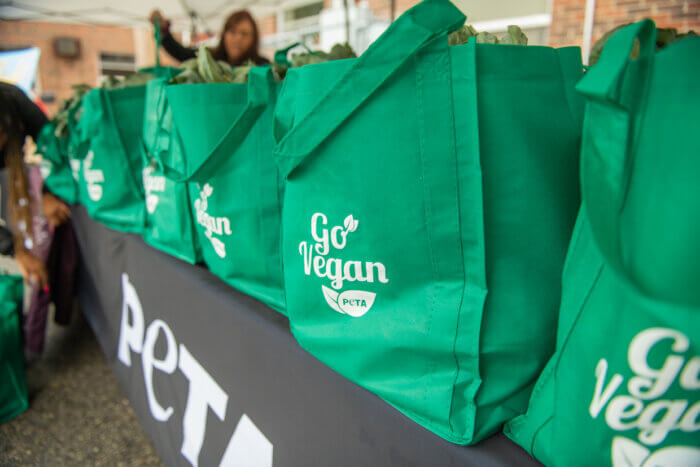
Here are just a few of the communities our food justice advocates have visited recently:
Detroit
In Detroit, we partnered with Christian Fellowship of Love Baptist Church, City Council President Pro Tem James Tate, Estella’s Vegan Cuisine & Desserts, and music producer Jermaine Dupri to serve residents in District 1, one of 19 communities in the city designated a food desert. Nearly 150 community members received Estella’s tasty chickpea “tuna” wraps, pints of JD’s Vegan ice cream donated by Dupri, and large cloth shopping totes from PETA filled with fresh fruits and veggies, soup mix, tofu, and postcards that attendees could send to their representatives to urge them to advocate for equal access to healthy vegan foods. The event was such a hit that Tate invited PETA representatives to speak about food inequality and our initiative at the District 1 community meeting.
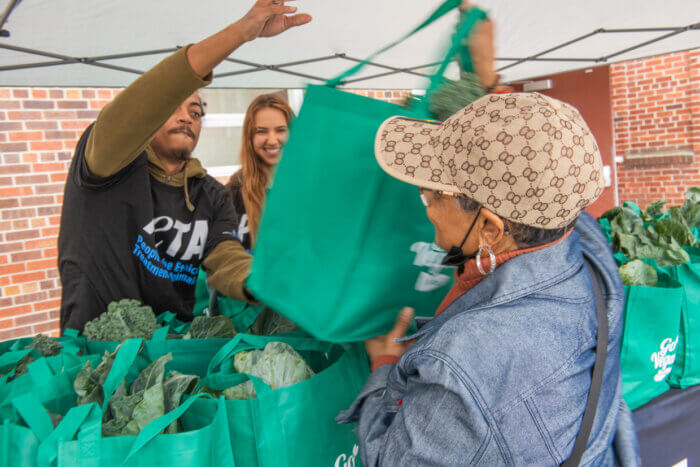
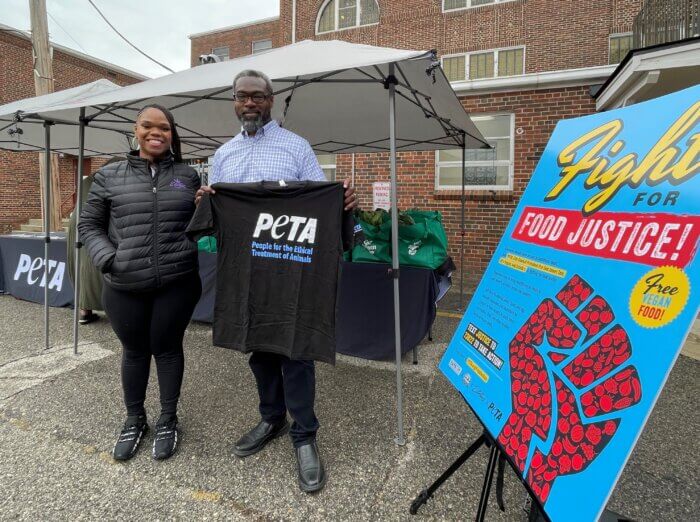
Atlanta
Senior Pastor Dr. Jamal Bryant of NewBirth Church helped shine a light on food injustice in his Atlanta community with help from Slutty Vegan restaurateur Pinky Cole. She served 300 of her restaurant chain’s iconic Chik’n Head and PLT sandwiches, while Dupri once again made sure the day ended on a sweet note by providing 500 pints of vegan ice cream. PETA distributed a whopping 1,000 meal kits full of healthy produce and encouraged attendees to call on their legislators—as Cole and Bryant have—to take action. In Atlanta alone, the U.S. Department of Agriculture has classified more than 35 areas as food deserts.
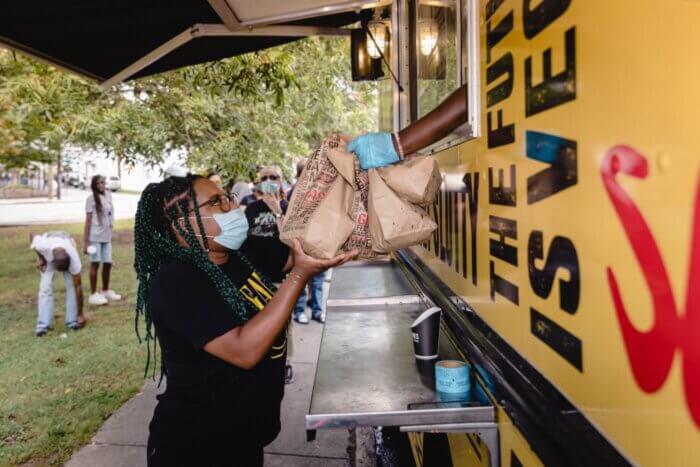

Baltimore
In Baltimore, the Rev. Dr. Robert Turner and the Empowerment Temple AME Church hosted a spirited event with The Land of Kush vegan soul food restaurant. Residents noshed on vegan crab cake sandwiches and meatless barbecue rib wraps after church while discussing the challenges of raising a family in a food desert and committing to working together to advocate for change. PETA made sure that everyone went home with a supply of nourishing food and tools to help them push for progress.
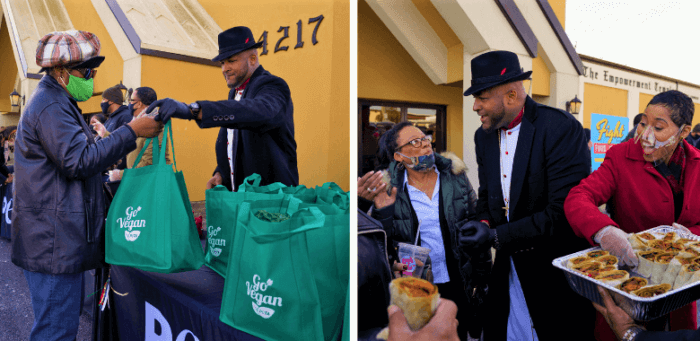
So what can lawmakers do to address food inequality?
Every year, the U.S. government spends about $38 billion in taxpayer money subsidizing the meat, egg, and dairy industries—the vast majority of which goes to big corporations instead of individual American farmers. What’s worse, only 0.04% of that amount is used for subsidizing fruits and vegetables, even though decades of studies have proved that choosing vegetables, grains, beans, fruits, nuts, and other vegan foods over meat, eggs, and dairy will support a lifetime of good health. According to the Academy of Nutrition and Dietetics, vegetarians and vegans enjoy a lower risk of death from coronary heart disease, lower blood cholesterol levels, lower blood pressure, and lower rates of type 2 diabetes. With lower body mass indexes and lower overall cancer rates, vegetarians and vegans live, on average, six to 10 years longer than meat-eaters.
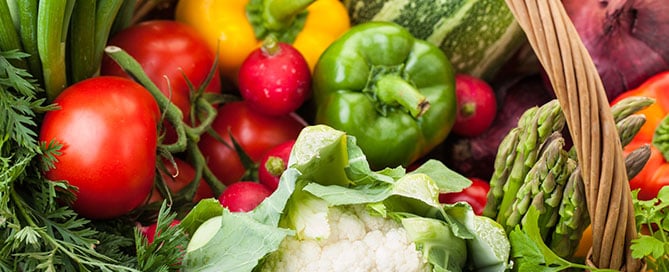 ©iStock.com/nicolamargaret
©iStock.com/nicolamargaretBut for those living in food deserts—which are disproportionately located in communities of color and lower-income neighborhoods—access to the healthy foods they need to thrive can be nearly impossible.
PETA believes that everyone deserves equal access to essential nutrition, so we’re calling on government officials to stop squandering billions on meat, egg, and dairy corporations and to redirect those funds to incentivize grocers in food deserts to stock the healthy produce, grains, legumes, and other vital foods their communities need. Doing so would spare many animals a lifetime of suffering, protect the planet from environmentally destructive animal agriculture, and improve human health.
How can you get involved?
Urge your local, state, and federal legislators to redirect your taxpayer dollars away from animal agriculture and to grocer incentives to fight food injustice. You can also sign up to receive food justice campaign news and action alerts.






